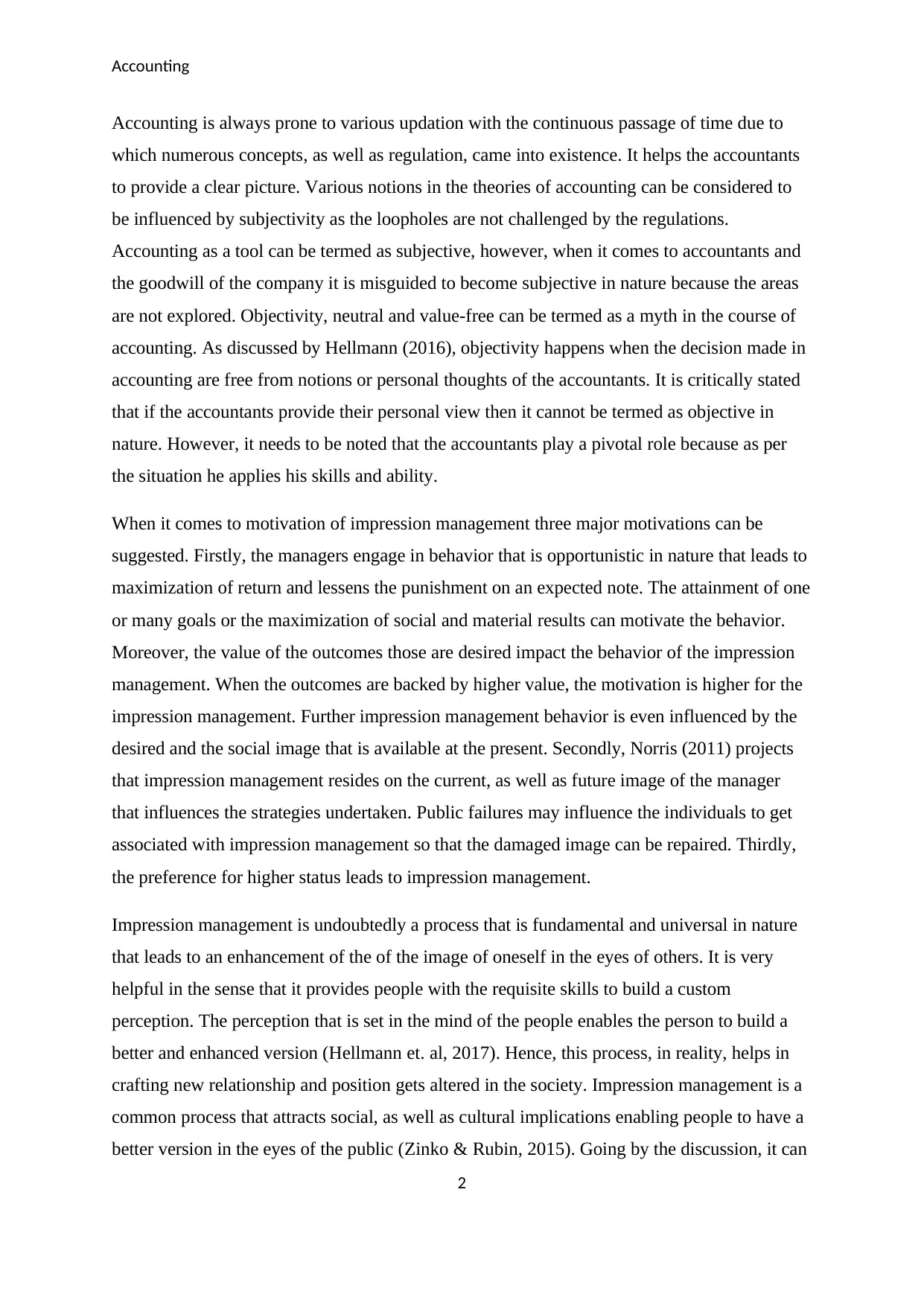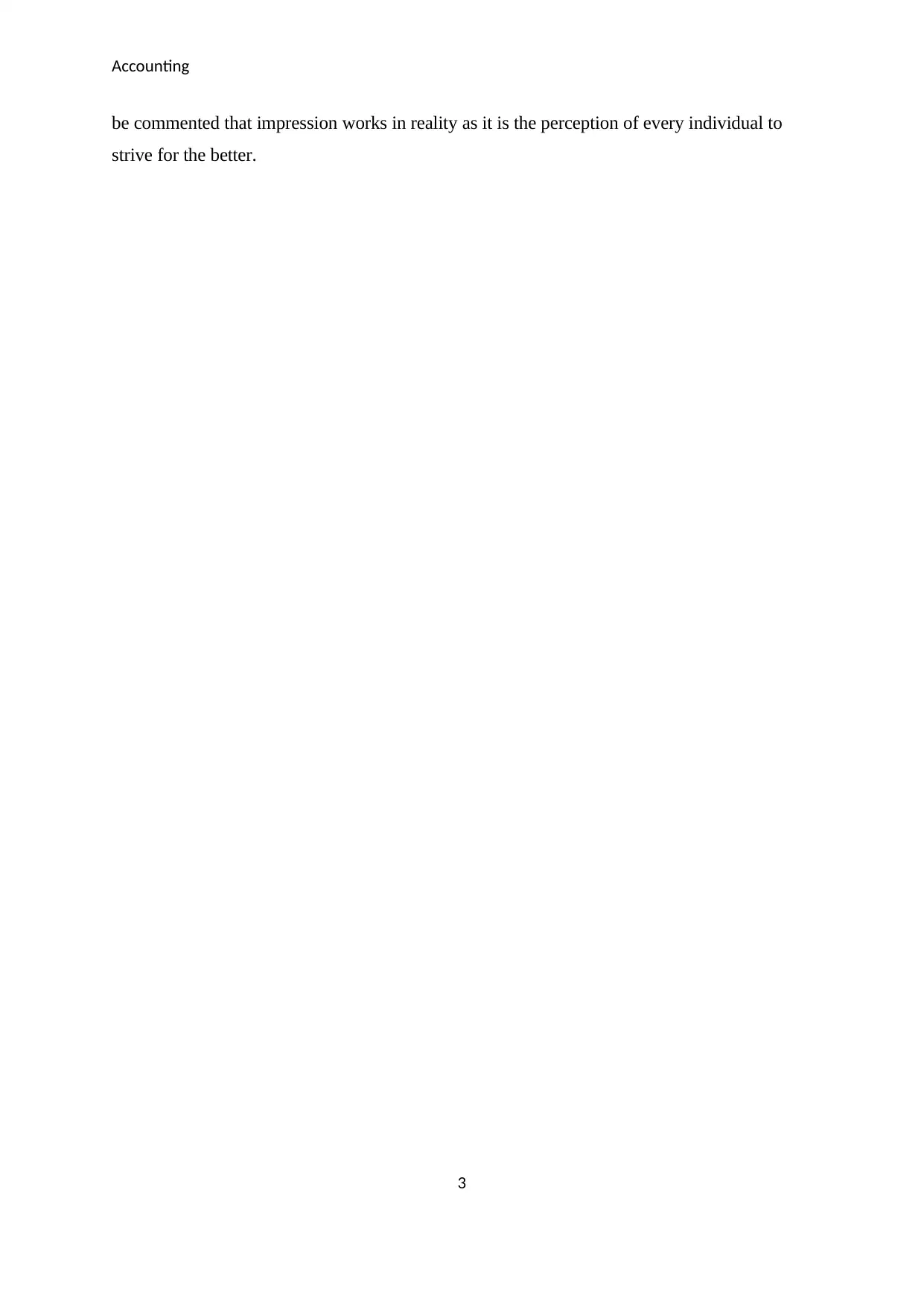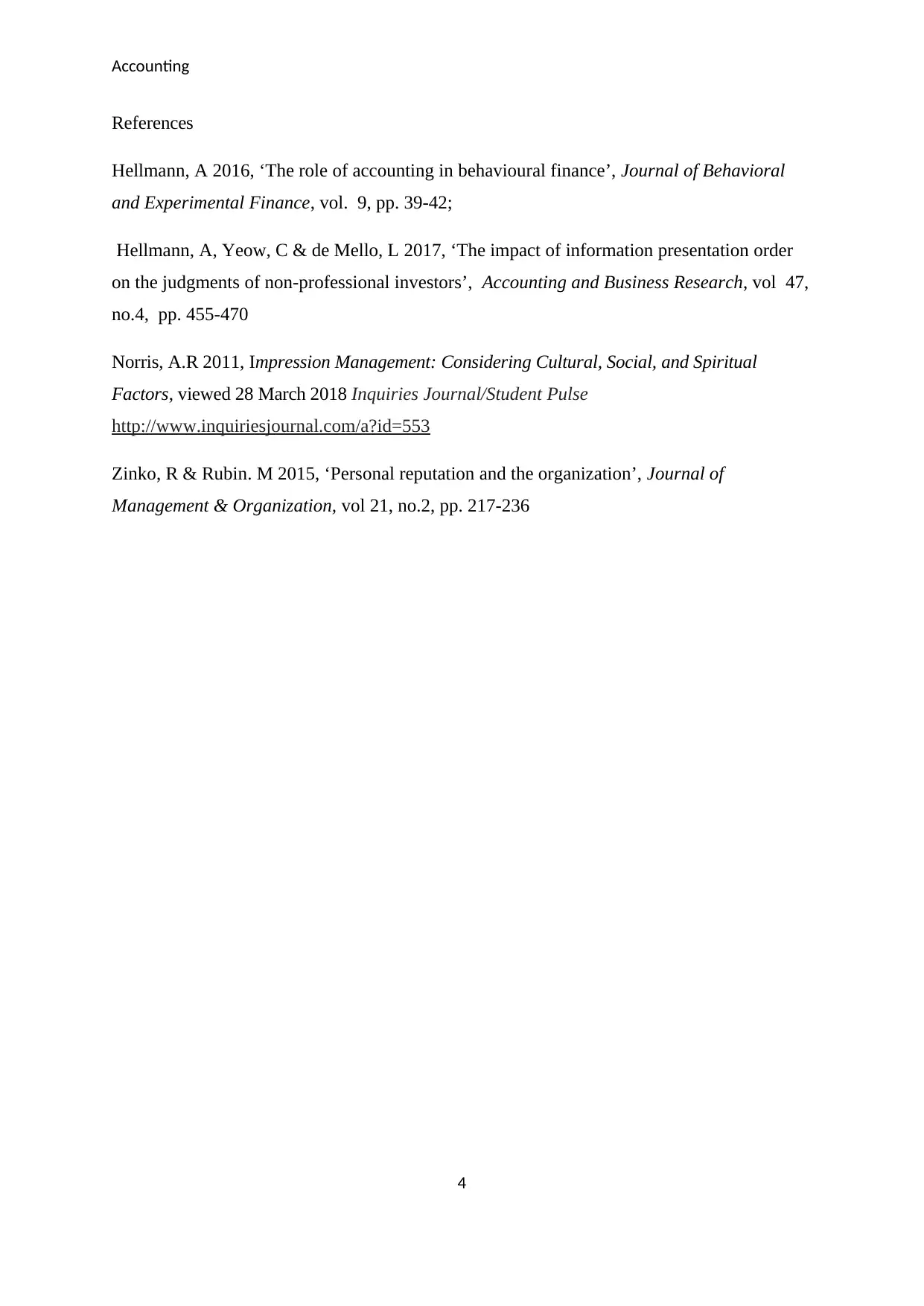Exploring Objectivity and Impression Management in Accounting Context
VerifiedAdded on 2023/06/14
|4
|687
|445
Journal and Reflective Writing
AI Summary
This assignment is a reflective piece exploring the concepts of objectivity, neutrality, and value-freedom in accounting, as well as the motivations and effectiveness of impression management. It references articles by Hellmann (2016, 2017) and discusses how accounting, while aiming for objectivity, can be influenced by subjective judgments and the personal views of accountants. The reflection delves into the motivations behind impression management, highlighting opportunistic behavior, image repair, and the desire for higher status. It concludes that impression management is a fundamental process for enhancing one's image and building better relationships, ultimately leading to an improved social standing. The assignment emphasizes that striving for a better perception is a natural human tendency, making impression management a reality.
1 out of 4











![[object Object]](/_next/static/media/star-bottom.7253800d.svg)